Homepage
Solving MRI inversion problems for quantitative multi-parameter estimation
Topic: Inversion problems, regularization, bSSFP, MRI simulations, data processing and analysis, complex systems.
Who: Students with a background in mathematics, computer science, physics, electrical or bio(medical) engineering. Everyone who is interested in new and creative mathematical models and solutions, regularization, computer simulations and parameter estimation on real experimental data.
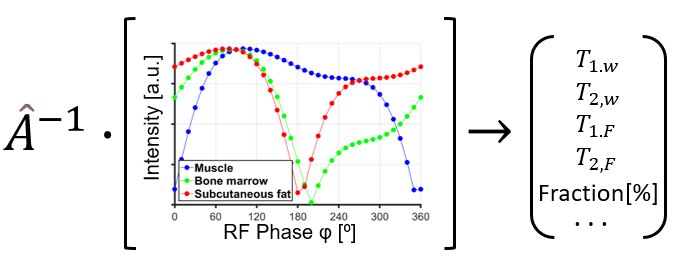
Background: In quantitative MRI the dynamics of a complex physical system is described by the combination of a set of physical equations leading to a certain kind of quantitative model or quantitative map. Those respective models/maps are used for the quantification of e.g. water-fat fractions or T1- and T2-time. By trying to map acquired/simulated data to the quantitative parameter of interest, inversion problems are frequently encountered. Depending on the problem, inversions can be challenging to solve. The challenge can either originate on the sparsity of acquired data or also on the mathematical model itself. The quantification of multi-Compartment systems in MRI exhibits a lot of inversion operations, where some problems arise as ambiguities or so called “ill-posed problems”. Sometimes it is possible to find solutions of the inversion by constraining the system to boundary conditions, by reducing the complexity or dimensionality of the model or bring it in another mathematical formulation. Some of those problems are not well understood yet and their solution is key for a robust quantification of multi-compartment systems in MRI.
Project: In this project, we aim to first identify a system with known dynamics, and then develop a solution for the identified system. The prospective student will investigate inversion problems arising in parameter quantification in multi-compartment systems, like water and fat, with special focus on the bSSFP-sequence. We will investigate whether a problem can be solved analytically/numerically by an unambiguous mathematical representation or develop a regularized inverse problem-solving technique. Elaborated solutions will be tested in simulations (Bloch-Simulation) and on real experimental data.
Virtual Tour ↗
Get a virtual tour of the museum. Ideal for schools and events.
Current Shows ↗
Stay updated and see our current exhibitions here.
Useful Info ↗
Get to know our opening times, ticket prices and discounts.
Latest posts
-
Guillaume Cheng wins the award for best MSc thesis in Biomedical Engineering
Guillaume Cheng won the award for the best MSc thesis “with an applied or technologically innovative focus“. The award is part of the Master program in Biomedical Engineering at the University of Bern. His MSc thesis was entitled “The Influence of Fat Suppression on Parametric Mapping in MRI”. The award ceremony will be on May 2nd […]
-
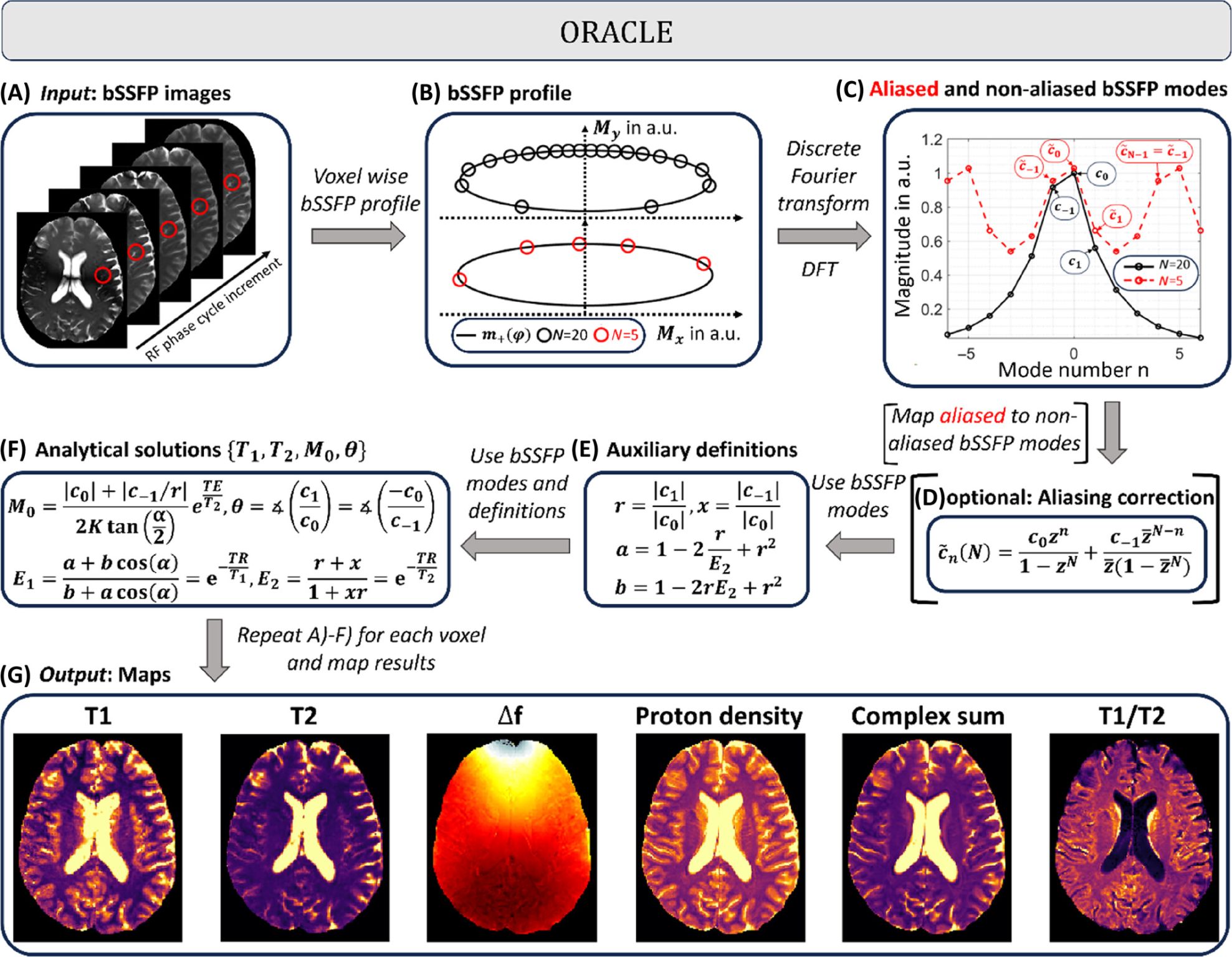
Our ORACLE paper was selected editor’s pick of April
Our work on elegant MRI techniques to extract quantitative information from the human brain was selected as editors’ pick in April. ORACLE: An analytical approach for T1, T2, proton density, and off-resonance mapping with phase-cycled balanced steady-state free precession. A huge congratulations to Nils Plähn for this amazing effort! What makes this exciting?– ORACLE delivers […]
-
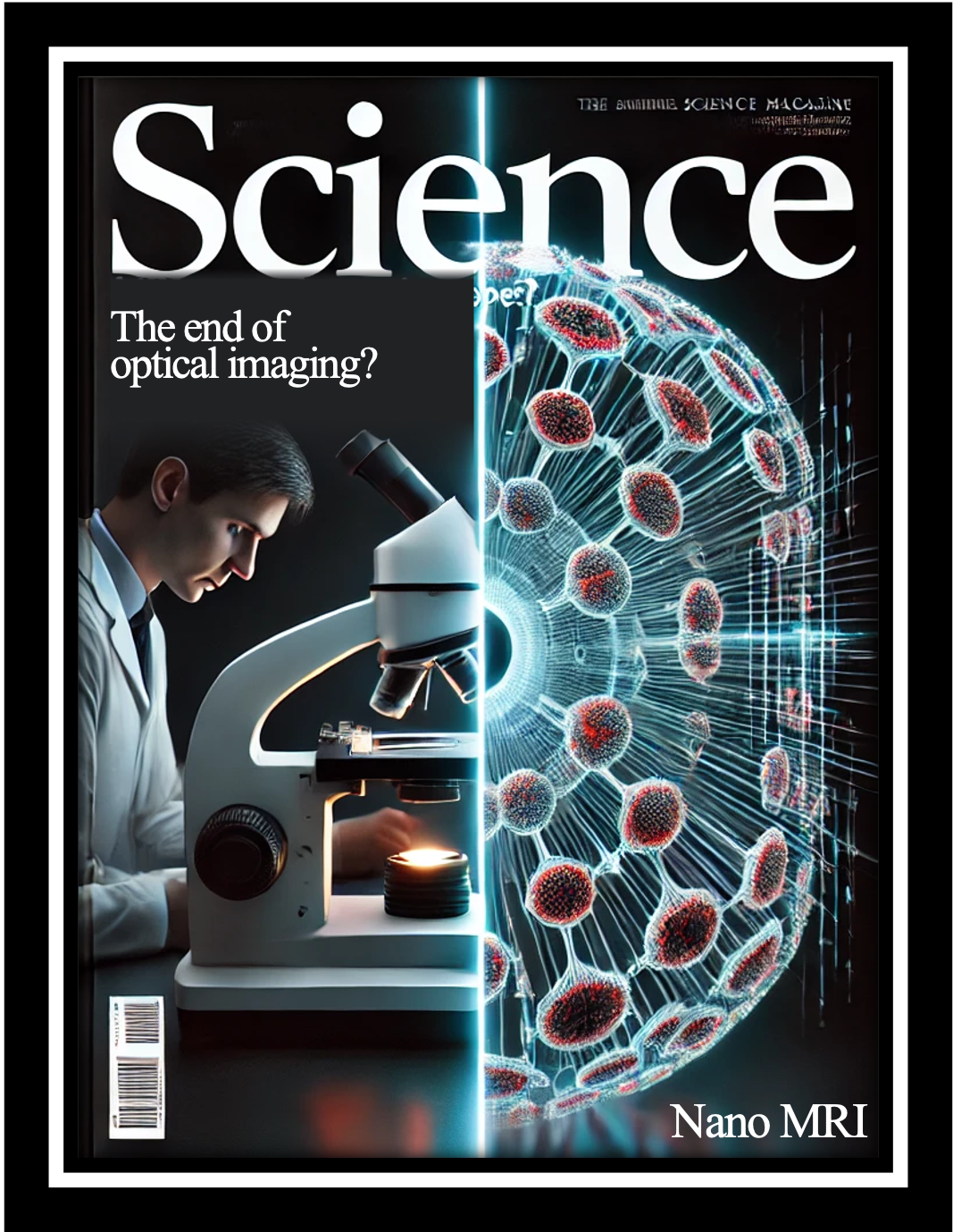
Jessica gave a seminar at the WCMM in Lund
Jessica gave a seminar on MRI at the Wallenberg Center for Molecular Medicine in Lund, Sweden. Her talk was about the power and pitfalls of quantitative imaging across the body. One of the covered topics was how MRI is going to replace optical imaging, based on a recent publication in Science.
-
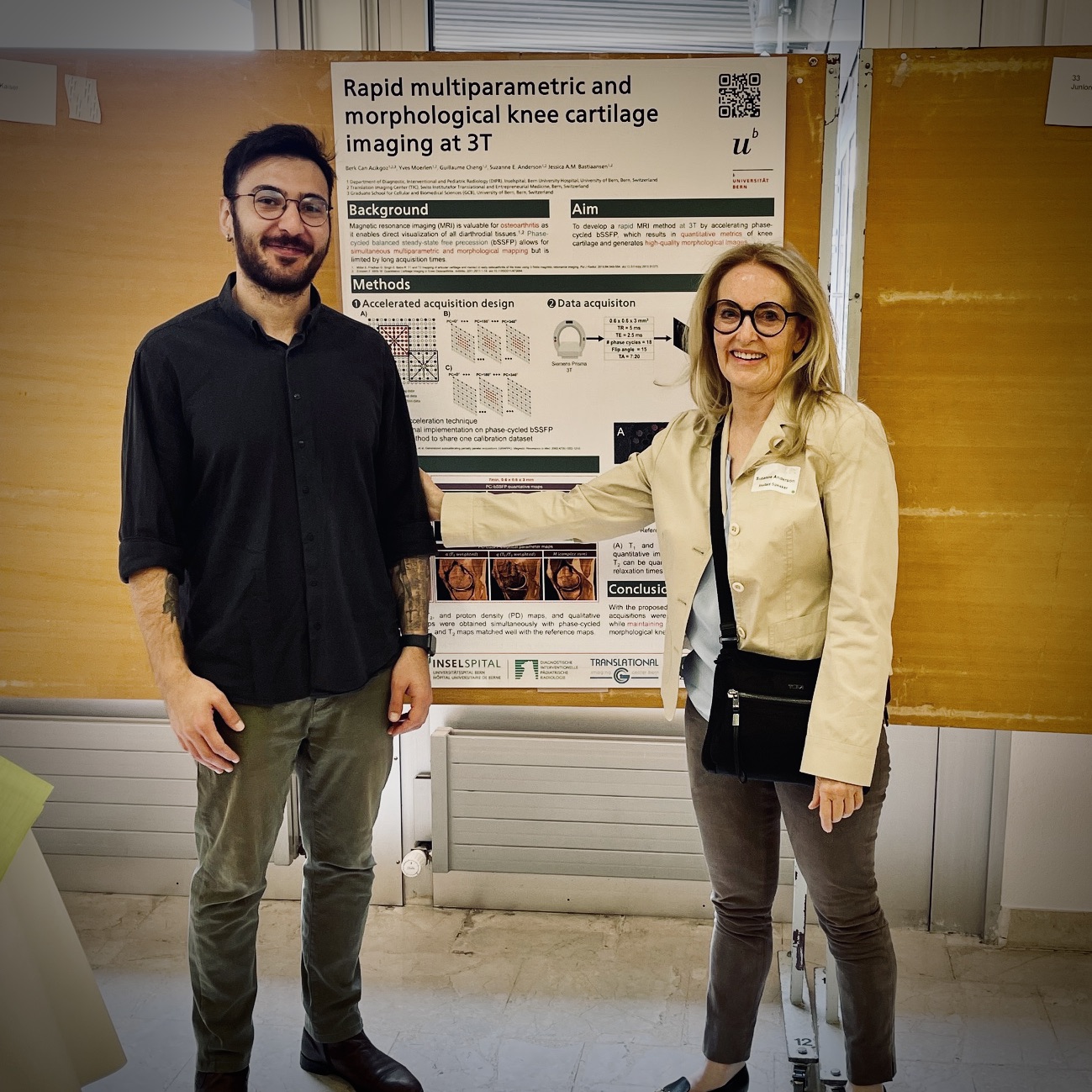
Getting inspired at the FELS research day
The Female Empowerment in Life Sciences (FELS) network organized a research day on March 21st with an exciting program. This one day event focused on promoting and enhancing excellence in research. Our team participated and Berk presented a poster on his latest work on rapid cartilage imaging. Besides research, panel discussions were held on “How can […]
-
Joe gave a lecture on perfusion MRI in Pamplona
During the ISMRM workshop on perfusion MRI Joe gave an educational talk on “The Physics of Arterial Spin Labeling Techniques”. The 3-day workshop was held in Pamplona, Spain.
-
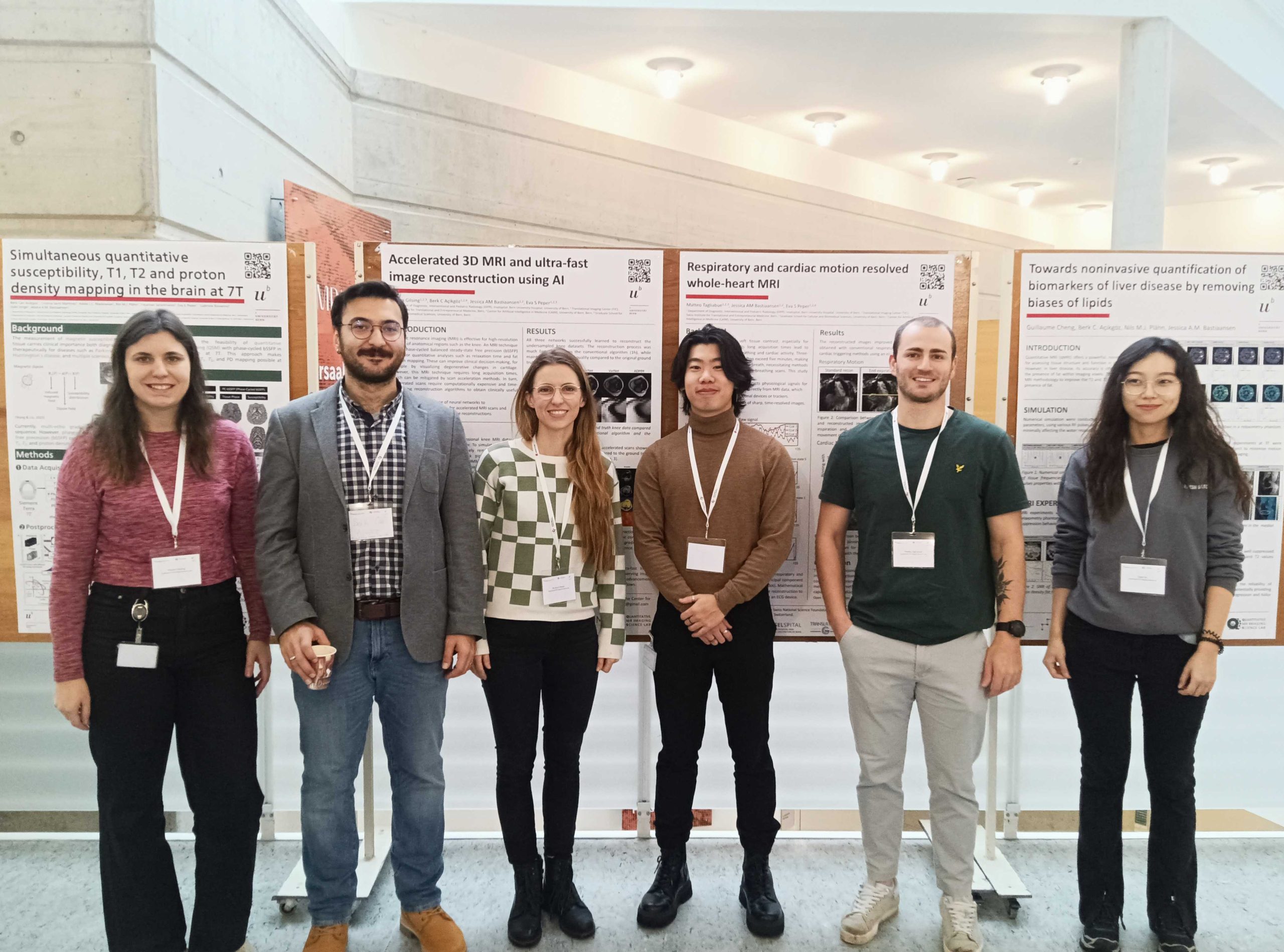
Awards for Matteo and Eva at the Day of Clinical Research
The Day and Week of Clinical Research 2024, held from 26 to 28 November, celebrated innovation and collaboration in clinical research. The event was organized by the Department of Clinical Research (DCR), during which Matteo Tagliabue and Dr. Eva Peper won a Poster Award. Eva won the award for Best Visual Poster for her work […]
-
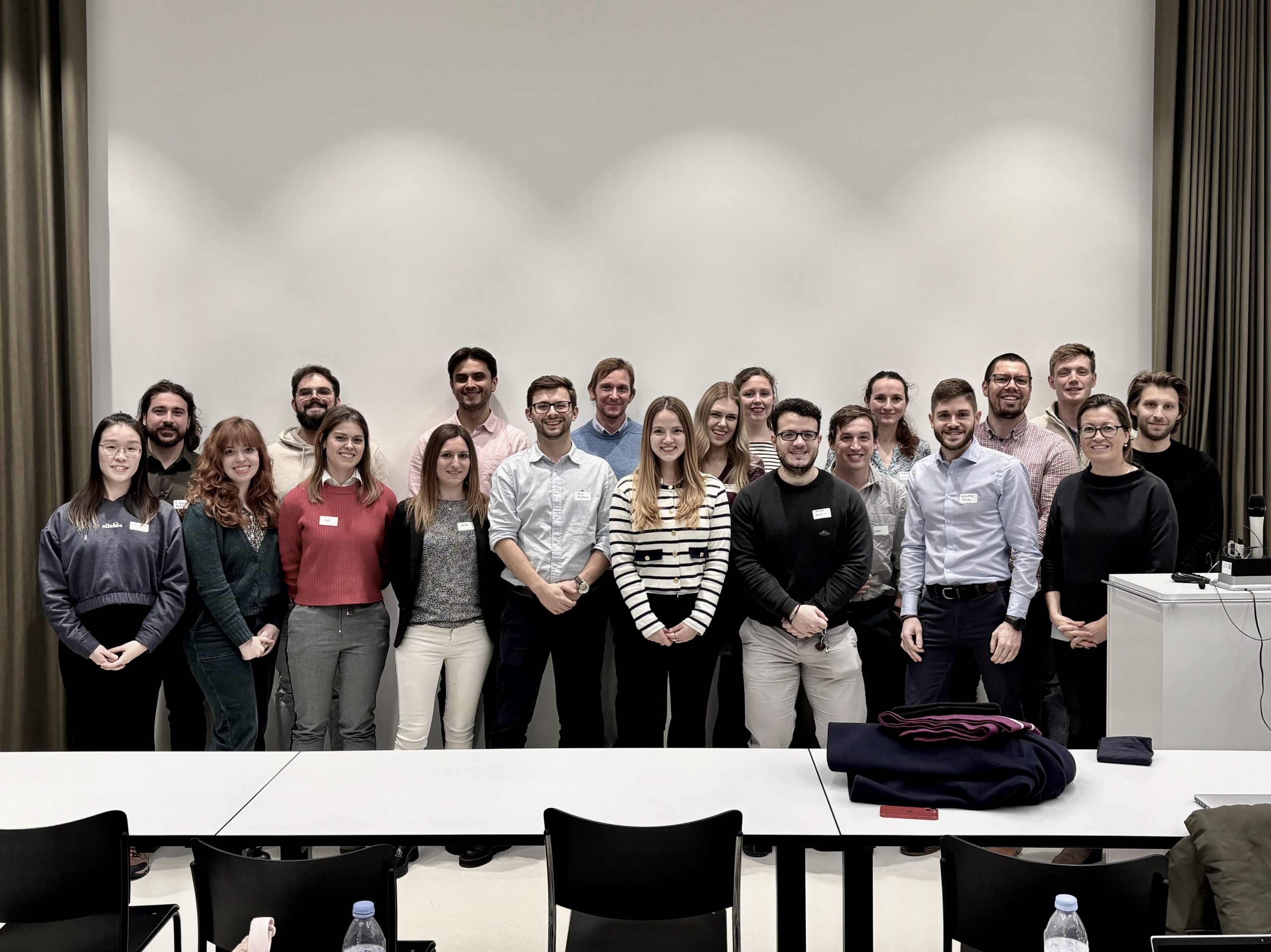
European Society for Molecular Imaging – SwyMIC day in Bern “How to image with magnets?”
The Swiss young Molecular Imaging Community (SwyMIC) – a young ESMI group, organizes a one-day, open-science, and networking event. WHEN? Friday 22 November 2024from 10.00h to 17.00h– with subsequent optional open-end Apéro at the Christmas Market. WHERE? Inselspital Bern, Lab building Murtenstr. 24 (Conference room EG50) WHO? The event is primarily designed for early-career investigators, but participation is in no way limited. […]
-
How to perform biomarker validation using MRI?
At the ESMRMB in Barcelona, Jessica was invited to give a talk on “Preclinical translation step-by-step” in an educational session entitled Biomarker validation using MRI. The lecture discussed strategies and personal experiences how one can validate biomarkers that are quantified with MRI, including some of its challenges and pitfalls.
-
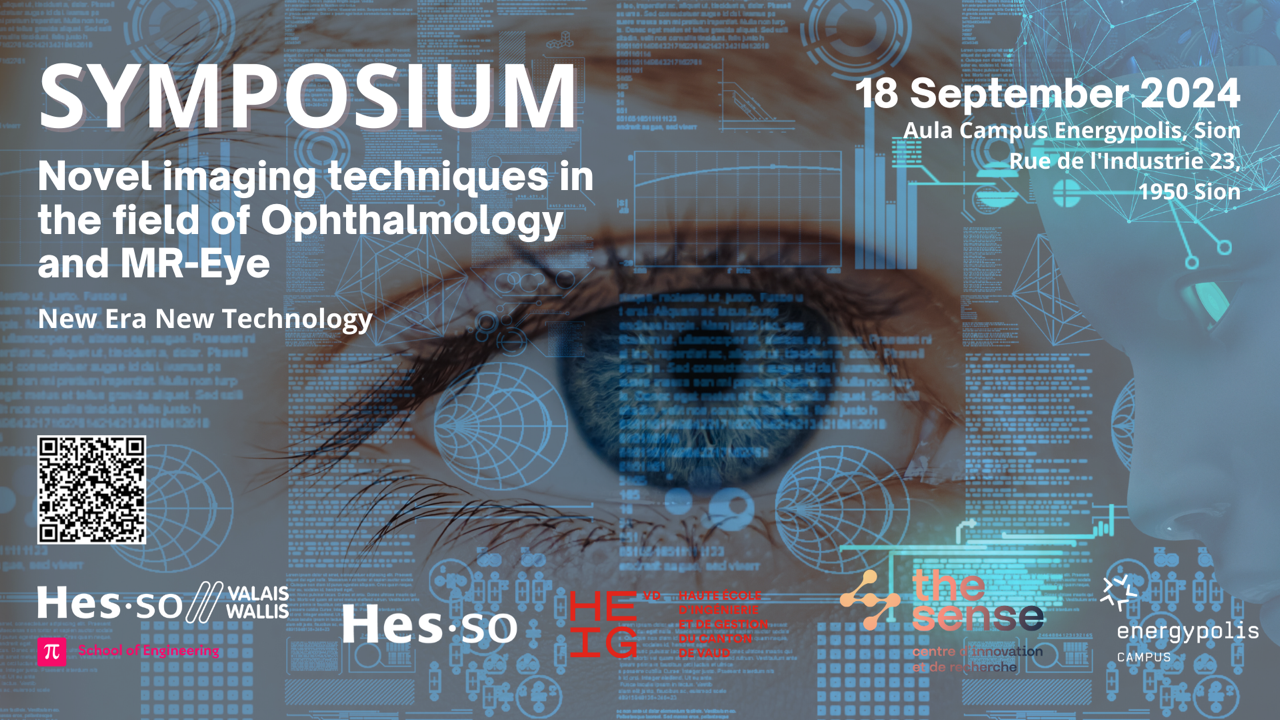
Symposium: Novel Imaging Techniques in the Field of Ophthalmology and MR-Eye
The QIS lab joined the MR-eye symposium in Sion, which was a great success! The symposium covered the latest in MR-Eye segmentation, dynamic eye-brain imaging, and the integration of functional vision sensors with optimised MRI sequences from the experts of the domain. Through machine learning, ophthalmic segmentation and complex image analysis, the early detection of […]
-
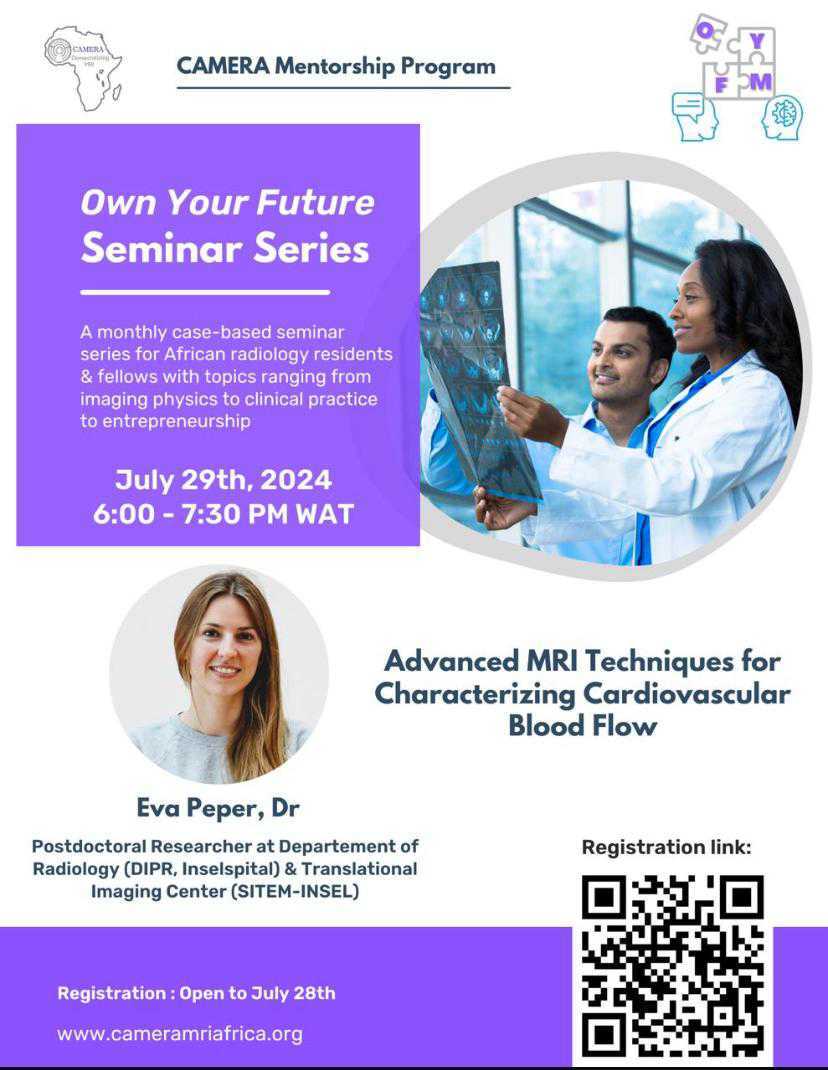
Dr. Eva Peper presented at the consortium for advancing MRI education and research in Africa (CAMERA)
Dr. Eva Peper was invited to speak at the Own Your Future Seminar Series of the Consortium for Advancement of MRI Education and Research in Africa (CAMERA). Her talk was entitled ‘Advanced MRI Techniques for Characterising Cardiovascular Blood Flow’. The vision of CAMERA is to make MRI accessible and to drive innovation to meet the […]


